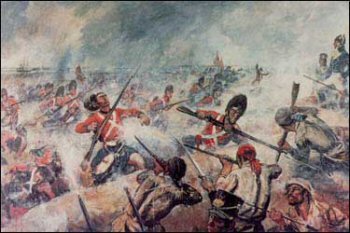
SOC 2114
Critical reflection #2
In this critical reflection, I will be discussing the French and Haitian Revolutions and how both, although different, realized that change was necessary to survive.
The French Revolution took place from 1789–1799. This was a period of radical social and political change in French and European history. “Within three years of this revolution, the once very powerful absolute monarchy that had ruled France for centuries collapsed. French society underwent an epic transformation as feudal, aristocratic, and religious privileges evaporated under a sustained assault from liberal political groups”. (Cody, 2007) Old ideas about hierarchy and tradition succumbed to new Enlightenment principles of citizenship. These all played a part in the transformation of France into the country it is today.
The Haitian Revolution took place from 1791–1804. This was a period of “brutal conflict in the French colony of Saint-Domingue, and ultimately led to the elimination of slavery and the establishment of Haiti as the first republic ruled by people of African ancestry”. (Hooker, 1996)
Significant economic differences between Haiti and France existed even before the revolutions began. “France was nearly bankrupt; wars with England and the American Revolution had been extremely costly for them”. (Cody, 2007) In contrast, the economy of Haiti was actually thriving and free labor from slaves created a surplus of goods.
The social class situations of Haiti and France were main causes of both revolutions. The Haitian social class system was based on race and consisted of four classes. The highest positions in the government and military were only held by “individuals who were born in Europe and had come over to rule, they were called Peninsulares. Directly under them were the Creoles who controlled most of the land and businesses. Creoles were defined as individuals whose parents were both Peninsulares in the colonies. The next social class was comprised of Mulattees who were half European and half African.” (Hooker, 1996) The last group consisted of pure Africans who were condemned to slavery. Slaves had no property, money, or rights. Most of the individuals in Haiti were slaves.
The French social system was broken down between three estates: “the first was made up of clergymen, the second of nobility, and the third of lower, middle and upper class. Most of the third estate consisted of peasants. The clergy encompassed one percent of the population and did not pay taxes; the second estate owned twenty-five percent of the land and did not pay taxes either– it made up two percent of the population. The remainder belonged to the third estate which held less than half the land in France and was forced to support the heavy burden of taxation in the bankrupt nation”. (Bretts, 2000)
The overwhelming disparity between the political and economic power of the high and low classes caused resentment in both societies as sadly, a very small number of people had privileges while the majority of people suffered.
The lowest class of each society realized that their strength was in numbers. As a result, “the 3rd estate broke free from France and created the Declaration of the Rights of man that outlined a set of rights that pertained to every man from any class. From there, it moved forward in taking over the country”. (Bretts, 2000) The fourth group in Haiti – the Haitian slaves - used its massive population and leadership to overthrow its oppressors as well.
Although both rebellions were successful in freeing themselves from unfair treatment and burdens, they chose very different ways to live life after their victories. Most of the “African slaves who achieved freedom in Haiti moved to the countryside to construct homes, and make a comfortable living. Conversely, the French victors turned their heads to conquest and strived to take over the world”. (Bretts, 2000)
Similar to the world today, countries will have a very different view of what victory means to them. Some feel it is freedom to live a comfortable life while others view it as a stepping stone to great victory somewhere else. No matter what your side is there are many ways go going about and overcoming many problems that can be faced on an individual or world stage.
Bibliography
.
- Hooker, Richard. (1996) The African Diaspora and the Haiti revolution. World civilizations.
- David, Cody (2007) The French Revolution. The Victoria web, literature & culture in the age of Victoria. http://www.victorianweb.org/history/hist7.html
- Betts F. Raymond (2000) Europe In Retrospect. A Brief History Of The Past Two HundredYears.TheFrenchRevolution.http://www.britannia.com/history/euro/1/2_2.html
No comments:
Post a Comment